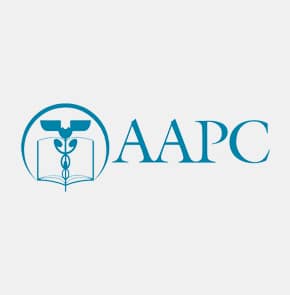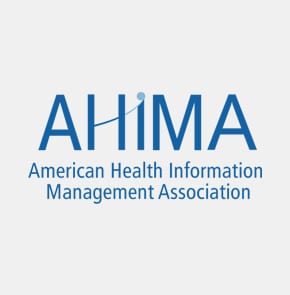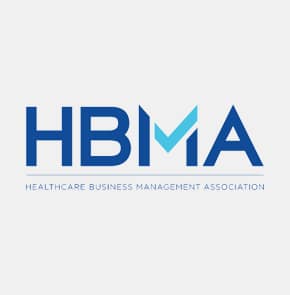University Headquarters (HQ) is an industry-leading, independent educational organization that provides independent college rankings using a proprietary formula to create first class, unbiased rankings. The team at University HQ strives to provide accurate and trustworthy rankings that highlight the best programs for medical billing and coding.
What Does a Career in Medical Billing and Coding Entail?
A medical billing and coding specialist processes patient data, such as insurance details and treatment records. Their main task is to review clinical statements and assign standardized codes using systems like ICD-10-CM, HCPCS Level II, and CPT. This process translates medical reports into codes that summarize services and document patient conditions, aiding in record storage and healthcare management.
Medical billing involves submitting and following up on insurance claims to secure payment for medical services. Billers interpret codes from medical coders to ensure providers are reimbursed. Their duties include charge entry, payment posting, insurance and patient follow-ups, and claims transmission. Billers need knowledge of procedural and medical terminology, anatomy, and billing practices to ensure accurate coding and proper payment.
Medical billing and coding professionals typically work full-time in healthcare settings like hospitals, clinics, and insurance companies, with some remote opportunities available. Employers often prefer certified professionals, as certification, such as CPC or CCA, can boost earning potential. Training programs cover topics like the international classification of diseases, procedural coding systems, anatomy, and physiology, preparing students for success in the field.
Below, we’ll look at some of the educational pathways you can take to become a medical billing and coding professional. Here’s a little more about the field, the prospects, and your education options.
Featured Online Programs
Typical Degree Requirements
A diploma in medical coding and billing can help students prepare for a career as a medical records technician. Students can learn about managing health records through standardized billing and coding practices. Medical billing and coding programs are generally offered through for-profit vocational schools or community colleges and typically take about a year to complete whether they are provided online or in the classroom. On top of the training courses, students usually complete on the job training under the supervision of a working professional.
While you do not need a degree to work in this field, many employers give preference to applicants with an associate or certification, students who wish to create more opportunities for themselves may opt to earn a full online bachelor’s degree in healthcare administration or health information management. Both options will provide students with a background in medical coding and billing and will offer a broader view of healthcare administration as a profession.
We recommend pursuing this path if you’d like to set the tone for a career that allows you to move up.
Find Your Medical Coding School
Typical Certifications Needed
While not a legal requirement, coders with certifications will be more employable than those without the credential. The American Academy of Professional coders offers several levels of certification. At the entry level, trained billers and coders can sit for the Certified Professional Coder (CDC). The AAPC certification exams span anatomy, physiology, medical terminology, and coding systems—and the association provides 22 specialty certifications for experienced coders, diving deeper into fields like cardiology, pediatrics, and surgery.
The Bureau of Labor Statistics (BLS) reports that the average salary for a certified coder is $51,454, though those with a bachelor’s degree can earn slightly more.
Academic Standards
 Online and on-campus associate medical billing and coding programs give students a general education and overview of the healthcare industry, medical procedures, current procedural terminology, anatomy and physiology, and terminology, as well as an in-depth look at the shorthand code used for keeping records within the American healthcare system. In some cases, associate or vocational programs offer credits for internships at a hospital or clinic, so students can gain some experience as they complete their coding degree program. These programs are available from a community college or university and there may be a medical billing and coding online program available as well.
Online and on-campus associate medical billing and coding programs give students a general education and overview of the healthcare industry, medical procedures, current procedural terminology, anatomy and physiology, and terminology, as well as an in-depth look at the shorthand code used for keeping records within the American healthcare system. In some cases, associate or vocational programs offer credits for internships at a hospital or clinic, so students can gain some experience as they complete their coding degree program. These programs are available from a community college or university and there may be a medical billing and coding online program available as well.
On the bachelor’s degree side, students will be expected to complete 120-130 credit hours of work focused on similar areas as the associate, as well as elective courses and general education requirements. A bachelor’s coding degree program also won’t focus exclusively on billing and coding; they will include more general healthcare learning.
Exam/Experience Needed
Medical billing and coding professionals will need to obtain training before they are eligible to work in the field. That said, most training takes place in the form of a vocational program, throughout a year or so. While this is an entry-level job, candidates need to have a firm grasp of the coding standards used across the US healthcare system.
The most common coding certification is a Certified Coding Associate (CCA), a designation administered through the American Health Information Management Association (AHIMA). Candidates are eligible to take the certification exam after they complete a training program. After a few years in the field, technicians are eligible to sit for the Certified Coding Specialist Exam, which includes either a hospital-based or physician option.
As we mentioned in the above sections, programs designed exclusively for medical billing and coding are not available online in the form of a bachelor’s degree or a master’s. Instead, those interested in pursuing only this aspect of healthcare administration may choose to continue their training in an associate program.
Associate Degree in Medical Billing and Coding Online
Associate programs will cover the basics of the healthcare system, as well as train students in the various medical codes and terminology that they’ll use on the job. Students will also learn about the law and ethics, as they pertain to patient information, medical terminology, and more.
Example Courses:
- Anatomy and Physiology
- Insurance Claim Procedures
- Medical Coding
- Medical Office Administration
- Medical Office Technology
- Medical Terminology
Bachelor’s Degree in Medical Billing and Coding Online
There are no bachelors just for medical coding, even in an online format. However, a bachelor’s program in health administration will teach students about the business side of the healthcare system. This program will cover subject matter similar to an associate program but will build on that knowledge with a dive into healthcare economics, accounting, finance, and personnel management. While students will learn about medical billing and coding and can receive certification, they’ll also receive excellent training that can prepare them for a variety of roles within this fast-growing industry.
Example Courses:
- Medical Billing and Coding (Elective Certificate Training)
- Leadership and Organizational Behavior
- Patient Care Management
- Information Systems Management
- Anatomy and Physiology
Find Your Online Medical Coding Program
Master’s Degree in Medical Billing and Coding Online
Students with a background in medical coding and billing who have earned a bachelor’s degree may choose to increase their prospects by earning a master’s degree, many of which can also be found online. Students can pursue a degree in health information management or healthcare administration. Both programs will prepare students for a management or executive role in the healthcare administration industry and will focus on management concepts, records management, human resources, and finance and accounting. This degree is a combination of industry-specific curricula, plus a deeper dive into the business side of the healthcare field.
To apply, students must have a degree in a related field such as healthcare management, health information management, business, or similar.
Related Fields of Study
-
Medical Billing and Coding
Medical billing and coding are offered as either a certificate or as an associate-level degree. Upon completing a program, students can work as professional billers or coders, and choose to pursue a certification. Certified coders earn about 6% more than their peers without the credential, according to the BLS. Medical billing and coding programs primarily teach students how to apply the correct coding to medical diagnoses for billing purposes.Students will learn about the billing process, insurance reimbursements, and in many cases, obtain on the job training. Associate degree holders may choose to start working after graduating, but they will have the option to continue their studies by applying credits toward a bachelor’s degree.
-
Medical Information Management
Medical information technology is offered at several degree levels. You can earn a certificate, an associate, bachelor’s, or master’s degree in this discipline, which focuses on a broader view of the medical information management occupation. This degree is the closest option for those who wish to pursue a medical coding and billing certification, but also want to earn a bachelor’s degree.During your four-year college career, you’ll learn coding classifications, as well as prepare for the registered health information technician exam (RHIT). According to the AHIMA website, this field is a cross-section of business, science, and information technology—and while it’s similar to healthcare administration, your primary focus is on record-keeping and protecting patient privacy.
- Healthcare Administration
Healthcare administration may be your best bet for higher pay within this industry. If you choose this as your undergraduate major, you’ll learn about legal issues within the healthcare space, medical terminology, health management, finance, budgeting, marketing, and information technology. A bachelor’s in healthcare administration provides a well-rounded education that can prepare you for many roles—including medical billing and coding, as well as management roles within a healthcare setting like a clinic, nursing home, hospital, or insurance company. While there are plenty of opportunities available for bachelor’s degree holders, pursuing an online master’s degree can pave the way for higher pay and roles in the C suites. Graduate programs dive deeper into the profession, looking at strategic planning, management, budgeting, leadership, and more.
Occupations
Find Your Online Program
Important Questions to Ask
How long does it take to earn a bachelor's degree?
Medical billing and coding programs are often called health information management or healthcare administration degrees. These degrees take four years, on average, to complete and students may choose to sit for the Registered Health Administrator exam after graduation. Associate degrees typically take about two years to complete, while vocational training programs are usually about a year.
Those enrolled in an online bachelor’s program may be able to participate in an accelerated track, though keep in mind that accelerated programs may put a lot on your plate at once. Many people choose to enroll in online courses due to a busy schedule or a full-time job, which are both factors that can affect how long it takes to complete your degree. Thus, many students attending online actually take longer to complete their degrees.
How much does a bachelor’s degree cost?
 A bachelor’s degree can cost anywhere between $160 per credit hour to $900 for private colleges or out-of-state programs. As such, students will need to look at factors like the school's location, the reputation, whether its public or private, and what fees you'll need to pay on top of the costs of tuition.
A bachelor’s degree can cost anywhere between $160 per credit hour to $900 for private colleges or out-of-state programs. As such, students will need to look at factors like the school's location, the reputation, whether its public or private, and what fees you'll need to pay on top of the costs of tuition.
Does the school have the major(s) you want?
You don’t actually need to go to college to work as a medical coder or biller, so finding a training program is a matter of researching schools according to keywords. Students may take courses from a vocational training program or get an associate's in this discipline. Those pursuing a bachelor’s degree may choose to earn their associate degree first and gain some work experience. From there, students may choose to build on their foundation by studying health administration, healthcare management, business, or public health.
With that in mind, you’ll want to look at schools that offer a strong curriculum when it comes to healthcare administration. Courses that cover customer service, medical terminology, medical coding, billing, and communications will all serve you well in a healthcare administration setting.
If you’re only interested in pursuing a career path in medical billing and coding, we recommend looking for an accredited program nearby.
How many students graduate “on time”, in four years?
One thing you might not think to consider is how many students graduate on time—or within that standard four-year time frame. If the school has a low graduation rate, it might be a sign that the faculty and administration have not provided the resources and support students need to succeed. A high graduation rate, on the other hand, is a good sign that a program offers quality education, that required courses are available, and that students have access to help if they get stuck or need guidance.
What kind of accreditation does the program hold? How is it regarded in the field?
If you’re looking to pursue a bachelor’s degree, you’ll want to find a program offered through an accredited institution, whether you are looking to attend online or not. Accreditation is typically provided through regional organizations, which work to ensure that students receive a consistent experience wherever they earn their degree.
Within the healthcare space, you’ll also want to look out for schools with a Commission on Accreditation of Healthcare Management Education (CAHME). This organization is responsible for setting measurable criteria for healthcare education — and earning the seal of approval from CAHME ensures that you will learn the proper methods for coding, billing, and other US healthcare processes.
Software/Technology/Skills Needed
- Tech Savvy
Medical billers and coders must be comfortable using computers and with technology in general. These days, just about every healthcare facility uses electronic record keeping software to store patient records, billing information, and insurance claims. - Commitment to Ethics
Medical billers and coders, as well as health administrators, in general, must have a strong set of morals, as handling sensitive patient information makes up a big part of their job. As such, billers and coders must make sure that these details remain confidential, in keeping with HIPAA standards. - Analytical Skills
A professional medical biller and coder needs to have an analytic mindset, as a significant portion of their job revolves around analyzing patient records and translating that information into the appropriate code. What’s more, billers and coders need to be able to investigate insurance claims against services performed, to ensure that providers are paid in full. - Detail-Oriented
Coding and billing professionals cannot make mistakes in their coding or when they submit billing information. Even just a small error can lead to severe issues for the provider, insurance company, and the patient. As such, this job is best suited for people that can consistently focus on their work—ensuring that all details are documented correctly.
Scholarships
-
Edith M. Allen Scholarship
Amount: $1,000 on average
Deadline: March 1
This scholarship is offered to members of the United Methodist Church pursuing a healthcare degree. Students must be active in the church and have a minimum 3.0 GPA. Amounts vary based on need, but people of color, women, and low-income students will receive preference.
-
AHIMA Foundation Merit Scholarship
Amount: $1,000-$2,500
Deadline: site doesn't say
Students must be members of the AHIMA and be pursuing an associate degree in medical billing and coding. The foundation offers $1,000 awards to students with high GPAs looking toward a career in medical coding and billing and $1,500 to students pursuing a bachelor’s degree in health information management.
-
Healthcare Information Management Systems Scholarship
Amount: $5,000
Deadline: Jan 28, 2021
This $5000 award is offered to students entering their junior year and pursuing a degree in health information management. Recipients will also receive an all-inclusive trip to the organization’s awards banquet and is available to students who have not previously won the scholarship in the past.
-
Albert W. Dent Graduate Student Scholarship
Amount: $5,000 (Up to 5 Awards)
Deadline: March 31
This scholarship, named in honor of the first African American Fellow of ACHE is offered to minority students pursuing a career in health information management. While it’s not a requirement, preference is given to student members of the ACHE.
-
Campus Safety, Health, and Environmental Management Association (CSHEMA) Scholarship Award
Amount: $2,000
Deadline: March 31
The CSHEMA offers an annual $2000 scholarship to students pursuing a degree in occupational health, safety, and related disciplines. The program is available to undergraduates and graduate students in any discipline—however, candidates must be looking toward a career within this health and safety umbrella.
Professional Organizations

AAPC
American Academy of Professional Coders
The AAPC is the world’s largest credentialing body for health information professionals. The organization offers membership, education, certification opportunities, and networking opportunities. AAPC also provides the CPC certification that entry-level coders and billers typically obtain after completing their training. Additionally, they offer several certifications to those who want to specialize in healthcare compliance, medical auditing, document management, or a whole range of coding for different areas of medicine.

AHIMA
American Health Information Management Association
The AHIMA is a professional organization that aims to provide knowledge, tools, and resources to advance health information as an industry. This organization offers several students with merit-based scholarships and offers several resources ranging from white papers to certifications for members. AHIMA also provides coding workshops and provides a code check service that functions as a resource for those with questions about any of the four classification systems used by the industry.

HBMA
Healthcare Billing and Management Association
The HBMA is a nonprofit organization that serves as a resource to billing, coding, and medical information professionals. The site states that the organization is a critical voice in the revenue cycle management industry and provides job boards, advice, and certifications to members.
Choosing an Accredited College
Of course, accreditation is one of the most important things to consider when it comes to your education. Colleges and universities in the US receive regional accreditation from one of six organizations recognized by the US Department of Education, and the accreditation process impacts your ability to transfer your credits, find work, or enroll in a master’s program after graduation. We recommend looking for schools with regional accreditation, as this designation signals that a school meets the US government’s standards. Within the healthcare industry, students should also look for schools recognized by the Commission on Accreditation of Health Informatics and Information Management Education.
Online vs. On-Campus vs. Hybrid
Medical billing and coding can be done either on campus or online. Both routes provide students with a background in medical diagnoses, procedures, and billing and coding classification systems. You can earn your online associate degree in medical billing and coding online, and from there, gain hands-on experience by participating in an internship. Or, that online associate degree can be applied toward earning your bachelor’s in health information management or healthcare administration.
While much of your coursework can be completed online, you will need to complete an internship to sit for your certification exam. Additionally, some coursework may need to be completed in person.
Frequently Asked Questions
What certifications can I earn?
There are a variety of certifications that you can earn in medical billing and coding. The one that is right for you might depend on the job you are looking for, where you are able to attend, or the courses you’ve already completed. Make sure to research the options thoroughly before settling on any one option. Many credentials are provided through the American Academy of Professional Coders.
These include the following and many, many more.
- Certified Professional Coder (CPC)
- Certified Professional Biller (CPB)
- Certified In-Patient Coder (CIC)
- Certified Professional Medical Auditor (CPMA)
- Specialty Medical Coding Certification: Anesthesia, Rheumatology, Hematology and Oncology, etc.
How do credentials stack?
As you might have guessed, because of the specific nature of some of these credentials, you can gain a lot from earning multiple certifications. By gaining certification as a professional coder, biller, in-patient coder, etc. you can make sure that you will be gainfully employed far into the future. Adding specialty certifications to your resume will provide you with opportunities to move into hospital work within specialized departments or specialist doctor’s offices. The main thing is that you can choose which to earn and which to ignore, creating your own specialized resume as you go.
Who should take a class in this field?
Anyone who is looking to get into a high paying career without spending four years in school may want to look into this field. The training programs are relatively short compared to a four-year degree, you can get paid more with each certification you earn, and you might even have the option to work from home with medical offices all over the country.
Does the College Have Post-Graduate Job Placement Help & Assistance?
Another thing to look for is how your college can help you after you’ve completed your medical billing and coding program. Find out if the program you’re looking at can help you secure an internship or if they have a career center, mentorship opportunities, or other resources that can give you the best start possible.
Why You Need to Consider How Rating/Accreditation Can Affect Your Salary
Medical billing and coding is a practical degree with a specific set of standards. Choosing a school that is accredited means that you will learn the classification systems that the US healthcare system uses—and you’ll be better prepared to earn certifications down the line. While there are plenty of vocational, for-profit institutions that provide training, those certificates will not go toward college credit if you wish to earn your online bachelor’s degree later on.
Additionally, a school’s reputation can impact your salary. While certifications are the key to getting work, a good school may help you secure an internship, connect you with alumni and faculty, and will provide a solid foundation for your further educational pursuits—whether you choose to earn your associate and start working right away or work your way up to a master’s degree and beyond.
Search All Programs
